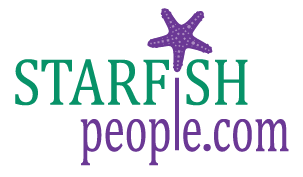After a period of relative stability, the number of COVID-19 cases is on an upward curve. Local lockdowns have been enforced and government guidelines are constantly changing, all of which presents new and ongoing challenges for HR.
Xperthr explored how HR is continuing to respond to the workforce challenges presented by the coronavirus (COVID-19) pandemic and includes a look at the future of the workplace. We also asked HR to tell us about the challenges that a second national lockdown or ongoing local restrictions would have on their priorities.
With a reversal in the guidance from the Government around returning to the workplace to working from home; the closing of the Coronavirus Job Retention Scheme and the introduction of the Job Support Scheme; and fines now in place for those who do not comply with self-isolation rules, HR certainly has faced compliance challenges. But alongside being expected to have answers to questions that are being posed for the first time ever, HR is also charged with supporting the business and its employees in an ever-growing range of ways.
We asked HR to describe the main challenges that they will be facing over the coming months – these are detailed below. But we also asked how HR professionals are dealing with the pandemic and, in the main, the responses clearly demonstrate the resilience of the function.
What has emerged is, according to one respondent, “a real sense of HR community, we are all in this together and supporting each other in the profession well (across other organisations and sectors). That feels good. Long may it continue as this is a tough, but challenging time for sure, to be in the world of HR.”
Another told us that “HR has shown real resilience throughout. The passion and enthusiasm for supporting colleagues throughout has been really evident across the profession, even where elements of it have suffered through the issues of lockdown and financial insecurity. I’m very proud to be in HR at the moment.”
It is clear this resilience will be needed, and is likely to be tested, over the next few months to overcome the five main challenges outlined by respondents.
1. Keeping the business going
HR is desperately concerned about how businesses and organisations will survive a second national lockdown or stringent local restrictions. Many told us that their organisation has had to make difficult decisions around redundancies up to this point but felt that, provided trading begins to resume at pre-COVID levels, things could stabilise. However, with new and ever-growing restrictions in place once again, one of the primary concerns among many of our HR respondents is how organisations will be able to pay employees’ salaries and continue to fund the business.
As one scientific research organisation told us: “If we go into total lockdown again, and we cannot have a core staff onsite, then the business is at risk of not meeting its business objectives, which could put the future of the company in jeopardy and jobs could be at risk.”
Another respondent explained: “We have employees in Scotland, England and Wales and so keeping up with different restrictions in each location is proving a challenge. We are concerned about our ability to maintain full pay for employees who are office based. We are actively looking at benefits and seeing where we can perhaps make changes to save the company money without impacting on too many employees – for example, withdrawing the company car scheme and only offering a car allowance. We need to be able to save on overhead costs and HR is being asked to step up and find creative solutions without impacting morale.”
2. Employee engagement
Many respondents are clear that a second national lockdown or extended local restrictions will have a major impact on employee wellbeing. It may lead to increased feelings of isolation, uncertainty and stress, and to employees feeling that they are operating more as a silo than as part of a team. Alongside this, HR is acutely aware that a challenging business outlook may result in redundancies and reductions in the workforce. This is a difficult position to balance – managing employee engagement when job losses may be on the cards. As much transparency as possible can help to remove uncertainty and encourage employees to ask questions and engage with business briefings.
Organisations that have already conducted a restructure and made some redundancies will be keen to build engagement with remaining employees, but many tell us that this is going to be difficult given the uncertainty around the future of their business operation.
Even where the future of the business or organisation is secure, there remains a significant employee engagement challenge as many employees are either working remotely or having to maintain social distancing and other COVID-secure measures when in the workplace. Ongoing communication across the business is more important than ever to encourage a dialogue with employees, and ensure that they have the opportunity to give feedback regularly on the challenges or issues that they are facing.
3. Employee wellbeing and mental health
There has been growing awareness around employee wellbeing and mental health for some time prior to the coronavirus pandemic. However, there is no doubt that overnight remote working, isolation and anxiety around health and job security has had an impact on mental health. One respondent told us that one in 10 employees are currently on sickness absence leave due to depression, up from zero pre-COVID, and they are anticipating that these numbers will at least double in the next six months.

Many are concerned about the wellbeing of their field-based employees that work at customer sites and describe the challenges of overcoming these employees’ feelings of isolation, especially when there is not a central site for them to return to, or regular interaction with colleagues or the company as a whole.
One respondent told us that she fears “we will see increases in employee burnout and those suffering from anxiety and depression. Managers will struggle to continue to keep staff motivated, engaged and connected during a second lockdown.”
Many lessons will have been learned during the national lockdown in March and HR is better equipped to deal with these challenges than before – utilising those lessons and putting plans in place sooner rather than later will minimise the impact on mental health of a second national or local lockdown.
4. Dealing with ongoing uncertainty and managing expectation
Many respondents have been critical of the timing of announcements from the Government and the speed at which they come into force. They also feel that there has been an absence of clear, cohesive, rational guidance from the Government and that this has led to confusion, inconsistency and “a general deterioration in public motivation to comply – this in turn fuels pandemic-denial and irresponsible behaviour”.
One respondent told us that it feels “as though the Government are working against HR with press announcements that happen late in the day or in the evening, with very little notice. HR teams and senior management have to scramble to make decisions and issue communications with very little warning. The vagueness of the guidance works against us and some clarity would be appreciated as it makes it very difficult to enforce policies when it is not black and white.”
Many also spoke of the dichotomy among senior leadership teams between those who want to return to the closest version of pre-COVID working practices, and those who are more open to innovation and changing the way – and place – of working.
Managing employee expectations is always a challenge but within the current environment, with the Coronavirus Job Retention Scheme closing and being replaced with a less generous Job Support Scheme, and many sectors facing delays to a return to anything near pre-COVID operations, it is an almost impossible task. HR in many organisations will move from those who facilitated solutions to those who will have to deliver difficult and unwelcome messages around job losses, lay-offs or short-time working.
5. Managing the practicalities of employees self-isolating
From 28 September, people in England are required by law to self-isolate if they test positive for COVID-19 or are instructed to self-isolate by NHS Test and Trace because they have been in close contact with someone who has tested positive. There will be fines for those breaking the rules, starting at £1,000 and increasing to £10,000 for repeat offenders. If an employer knows that an employee has been instructed to self-isolate, it will commit an offence if it requires or allows them to attend the workplace. Employers will no doubt look to HR to ensure that they remain compliant.
Many respondents also told us of the frustrations they had with the testing process, with many employees unable to access tests. This has had an impact on the business where those awaiting tests or test results need to self-isolate and cannot work remotely.
Finally, take time to look after yourself
Respondents have told us that the pandemic has been one of the most difficult and challenging situations that the HR profession has faced. That they have had to “make up the rules as we go along, just like the Government. Sometimes we get it right, sometimes we don’t”, and that this year has really tested all aspects of the HR skillset.

Business leaders, line managers, facilities and employees are all looking to HR for answers to never-before posed questions. The pressure placed on HR during these times has been phenomenal, but the function has demonstrated once again how integral it is to business success or survival.
But HR needs to take the advice that it gives to employees and business leaders. Take time for yourself to look after yourself, be strict on taking regular breaks, try to put your job away at the end of your working day and be kind to yourself.
Author Noelle Murphy
If you’re looking for advice on this subject and want to know how the changes will impact your business.
Contact us by completing our secure contact form

Alternatively call us direct on 01243-607357, or email [email protected]


